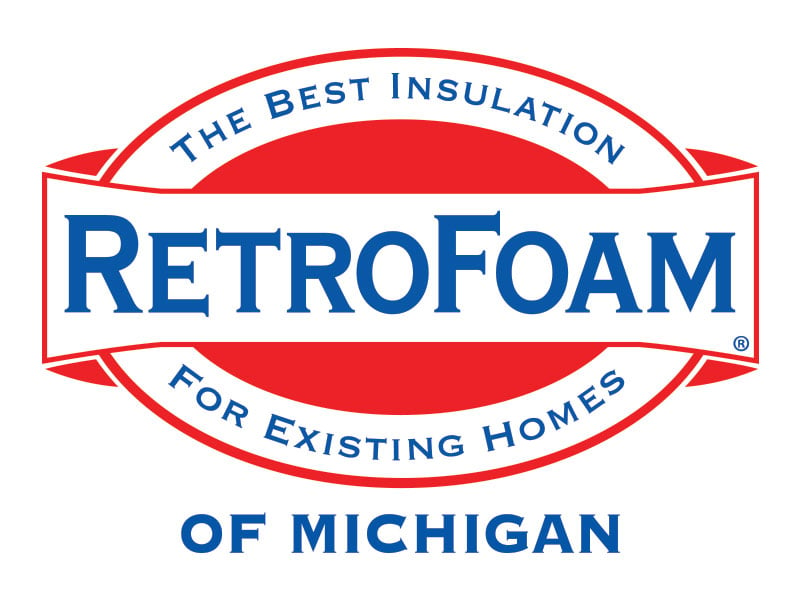Inflation Reduction Act Offers Insulation Tax Credit for Michiganders


UPDATE: The recent passage of the One Big Beautiful Bill Act has changed certain aspects of the Inflation Reduction Act, including the expiration date for the Energy Efficient Home Improvement tax credit. This tax credit expired on December 31, 2025.
Each year, as tax time comes around, homeowners look for ways to lower their liability so they don’t owe a ton of money.
Beginning in January 2023, the Inflation Reduction Act of 2022 made it easier for homeowners to claim certain energy-efficient home upgrades. One of the many qualifying improvements is the addition of foam insulation to the home.
You probably have a lot of questions about how these tax credits work and how to get them, so let’s jump right in.
What is the Inflation Reduction Act of 2022?
The Inflation Reduction Act of 2022 is a budget reconciliation bill that will invest $300 billion in deficit reduction and another $369 billion in climate change programs and energy security until 2032, according to a U.S. Senate summary of the bill. Aspects of the bill have been revised, and the expiration dates for certain credits and rebates are now shorter.
So, what does this mean for a homeowner who has decided to add foam insulation to their home?
Any qualifying energy-efficient upgrades made between 2023 and December 31, 2025, will be eligible for a tax credit that covers up to 30 percent of the project.
Here are the basics you need to know:
-
A household can claim up to $1,200 in tax credits each year for completing energy-efficient upgrades to the home. This includes home insulation.
-
There is a special credit of up to $2,000 for electric heat pumps that provide super-efficient heating and cooling.
-
Households can also claim a credit of up to $150 for a home energy audit that is completed by an inspector.
-
This includes state programs that offer rebates for electrical appliances and home retrofits that can lower monthly energy bills.
-
A key takeaway from the Inflation Reduction Act is that the previous tax credit lifetime cap of $500 has been changed to an annual credit of up to $1,200 each year through 2025.
Can I Get a Tax Credit for Insulating My Home in Michigan?
Suppose you’re considering injection foam insulation for your existing walls and spray foam insulation for your attic and crawl space. In that case, the good news is that both qualify for the insulation tax credit.
Both RetroFoam insulation and the spray foam insulation materials we offer create an air seal in the home. This is especially helpful here in Michigan, where we feel an array of seasons and temperatures in just one week.
The air barrier created by foam insulation reduces monthly energy bills because it helps maintain a constant temperature. All of the air you pay to heat and cool stays inside where you want it, while the elements stay out.
Sealing the entire building envelope of your home with foam insulation is an energy-efficient upgrade that is beneficial at tax time and each month when the heating and cooling bills come.
One thing you can’t put a price tag on – a more comfortable home year-round.
Making your home more energy efficient with foam is just one of the upgrades you can make to get the insulation tax credit, but what else qualifies?
What Else Qualifies for the Energy-Efficient Home Improvement Credit?
The Inflation Reduction Act of 2022 allows for insulation tax credits, but there are other upgrades that qualify as well.
These other energy-efficient home improvements include:
-
Replacing current appliances with Energy Star-rated models.
-
Adding solar panels to the roof.
-
Replacing HVAC systems with an efficient heat pump. These pumps do the jobs of both the air conditioner and the furnace.
-
Professional home weatherization services.
You don’t have to do all of these updates at once. Changes to the tax credit mean you can tackle these improvements at your own pace over the years until 2025.
One year, you might decide to replace all of your appliances with Energy Star-rated ones, and then update your insulation the following year. However you choose to tackle these updates, you’ll be eligible to lower your overall tax liability with the credit. Not to mention the money you’ll save on monthly energy bills.
Tax Credit for Insulation and Michigan Rebates
RetroFoam of Michigan has been proud to work with Consumers Energy, DTE, and other energy providers over the years to be able to offer Michigan homeowners rebates to insulate certain areas of their homes.
Now it is exciting that homeowners have even more opportunities to potentially save money with these rebates, as well as reduce their tax liability with the Inflation Reduction Act’s federal tax credit for home insulation.
If you want to learn more about the credits available, check out the Energy Star website or talk to your tax preparer. Here are the documents you will need to file for the tax credit regarding foam insulation:
- Polymaster RetroFoam Manufacturer's Statement
- IRS Form 5695
- Copy of contract with RetroFoam of Michigan
Related Articles
Finding Insulation Rebates to Lower the Cost of Home Insulation
Types of Insulation Rebates in Michigan (Standard Mail-In vs. Home Performance)
About Amanda Emery
Amanda previously has worked as a breaking news and crime reporter, TV news producer, and editor in Flint and Detroit. Throughout her career as a journalist, she has won several awards from The Society of Professional Journalists - Detroit Chapter and the Michigan Press Association. As part of the RetroFoam of Michigan family, Amanda uses her experience as a journalist to write content that will help educate homeowners on the benefits of foam insulation. When Amanda isn’t writing, she’s spending time with her husband and rescued huskies. She also loves knitting, making art, cooking, and hosting dinner and a movie night for friends and family.


